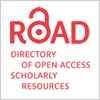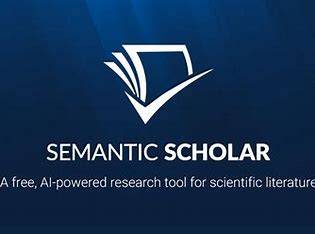FAMILIAL THROMBOPHILIA: HOMOZYGOUS MUTATION OF FACTOR V LEIDEN
DOI:
https://doi.org/10.47820/recima21.v4i8.3822Keywords:
thrombophilia, homozygosis, thromboembolism, Factor V Leiden , mutationAbstract
Venous Thromboembolism represents a serious public health problem worldwide, represented by Deep Vein Thrombosis (DVT) and Pulmonary Thromboembolism (PTE). This is a multifactorial disease, caused by factors acquired from the environment and others intrinsic to the individual. Among these factors, deficiencies in coagulation factors, platelet anomalies, vascular diseases and changes in coagulation cascade inhibitors can be highlighted. Regarding these causes, one of the main factors that lead to thrombosis is the mutation in the genes that express Factor V Leiden (FVL). The Leiden genetic mutation has a dominant inheritance and the mutated gene in heterozygosity for FVL increases the risk of thrombosis by up to five times more compared to a person without mutation, whereas homozygosity (when both alleles are mutated) increases the chances of thrombosis from fifty to a hundred times.
Downloads
References
Carroll BJ, Piazza G. Hypercoagulable states in arterial and venous thrombosis: When, how, and who to test? Vasc. Med 2018; 23:388–99.
Curtarelli A, Silva LPC, Camargo PAB, et al. Profilaxia de tromboembolismo venoso, podemos fazer melhor? Perfil de risco e profilaxia de tromboembolismo venoso em hospital universitário do interior do estado de São Paulo. J Vasc Bras. 2019;18: e20180040.
Dassoler FJ, Matiollo C, Bratti LOS, de Moraes ACR. Prevalence of Factor V Leiden in a healthy population in Santa Catarina, Southern Brazil. Int J Lab Hematol. 2021;43(2):e72-e75.
Federici EH, Al-Mondhiry H. High risk of thrombosis recurrence in patients with homozygous and compound heterozygous factor V R506Q (Factor V Leiden) and prothrombin G20210A. Thromb Res. 2019 Oct;182:75-78.
Garcia, A. C. F., de Souza, B. V., Volpato, D. E., Deboni, L. M., de Souza, M. V., Martinelli, R., & Gechele, S. (2019). Realidade do uso da profilaxia para trombose venosa profunda: da teoria à prática. Jornal Vascular Brasileiro, 4(1), 35-41.
Hernández-Cuervo H, Usme S, Yunis JJ. Genotipos frecuentemente asociados a trombofilias. Biomedica. 2014 v 34, p132-142.
Konstantinides, S.V., et al. 2019 ESC Guidelines for the diagnosis and management of acute pulmonary embolism developed in collaboration with the European Respiratory Society (ERS). European Heart Journal. v. 41, n. 4. p. 543-603, 2019.
Michel CA, Rocha JB, Costa DC, Lima CA, Batschauer APB. Prevalence of factor V Leiden in patients with venous thrombosis. J Bras Patol Med Lab. 2016 v. 52, n. 4, p. 227-232.
Moreira, M. V., de Oliveira Vieira, J. D., dos Santos, A. B. B., Netto, A. F., de Mendonça Fonseca, I. G. N., Lopes, J. A., ... & Tavares, R. L. (2021). Tromboembolismo pulmonar: dos aspectos epidemiológicos ao tratamento. Brazilian Journal of Health Review, 4(2), 8350-8363.
Ruiz LGP, Oliveira MGL, Ruiz ALZ, Daher CS, Nogueira ML. Hereditary thrombophilia by factor V Leiden G1691A (heterozygous) and FII prothrombin G20210A (homozygous) mutations in a patient with ischemic cerebrovascular accident. J Bras Patol Med Lab. 2018 Apr; 54(2): 92-94.
Downloads
Published
How to Cite
Issue
Section
Categories
License
Copyright (c) 2023 RECIMA21 - Revista Científica Multidisciplinar - ISSN 2675-6218

This work is licensed under a Creative Commons Attribution 4.0 International License.
Os direitos autorais dos artigos/resenhas/TCCs publicados pertecem à revista RECIMA21, e seguem o padrão Creative Commons (CC BY 4.0), permitindo a cópia ou reprodução, desde que cite a fonte e respeite os direitos dos autores e contenham menção aos mesmos nos créditos. Toda e qualquer obra publicada na revista, seu conteúdo é de responsabilidade dos autores, cabendo a RECIMA21 apenas ser o veículo de divulgação, seguindo os padrões nacionais e internacionais de publicação.

 Clique para ver detalhes
Clique para ver detalhes 











